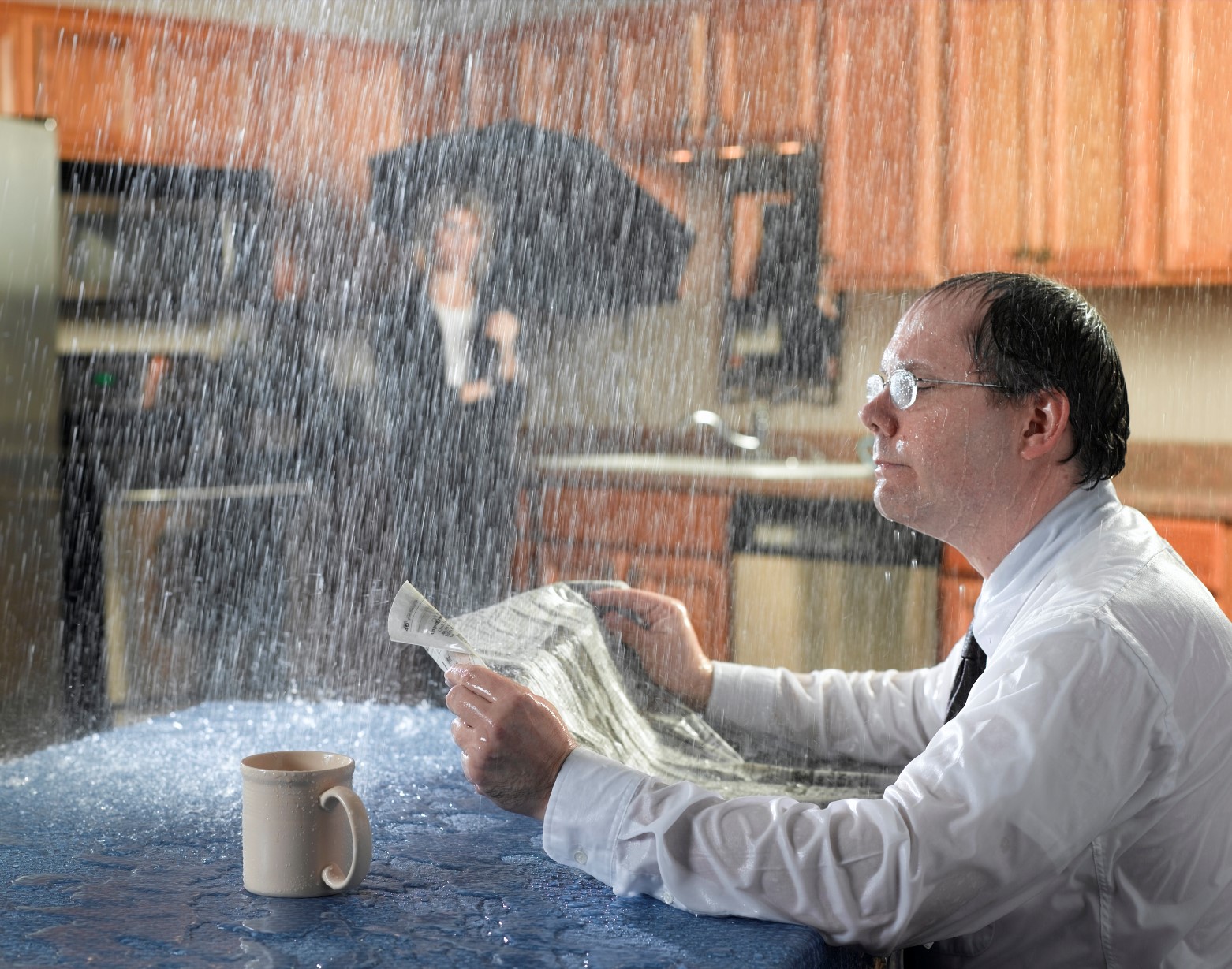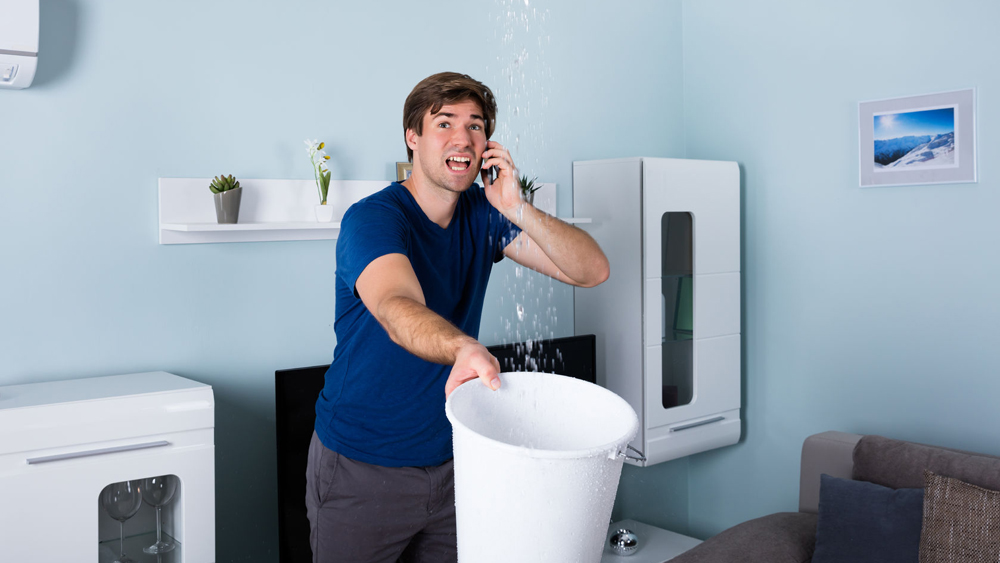Preventative Measures for the Six Most Common Causes of Water Leaks in Homes
Preventative Measures for the Six Most Common Causes of Water Leaks in Homes
Blog Article
The article author is making several good pointers related to Common Water Leaks In House overall in this post followed below.

Leakages not only cause waste of water however can additionally trigger unnecessary damage to your residence as well as promote undesirable organic growth. Water leakages could go undetected given that many of the pipework in our residence is hidden. By recognizing and looking for everyday situations that cause leakages, you can secure your house from future leakages and also unnecessary damages. Today, we will take a look at six leakage creates that might be triggering your pipelines to leak.
Trespassing origins
A lot of water leakages start outside your house rather than inside it. If you notice an abrupt reduction in water stress, state in your faucet, require time to go out and also examine your lawn. You could discover damp spots or sinkholes in your backyard, and that may mean that tree roots are getting into water lines causing water to seep out. You can have your plumber check for intrusion, particularly if you have trees or bushes near your residential or commercial property.
Rusty water supply
This may be the reason of staining or bending on your water pipes. If our plumbing system is old, take into consideration replacing the pipes given that they are at a greater danger of corrosion than the more recent models.
Defective Pipe Joints
Pipeline joints can degrade over time, resulting in water leakages. If you have noisy pipes that make ticking or banging noises, especially when the warm water is transformed on, your pipeline joints are probably under a lot of stress.
Instant temperature changes.
Severe temperature level changes in our pipelines can cause them to increase and also get all of a sudden. This development and contraction might cause fractures in the pipes, specifically if the temperature are below freezing. It would be best if you kept an eye on how your plumbing works. The visibility of the formerly discussed circumstances frequently shows a high risk.
Poor Water Connectors
At times, a leakage can be triggered by loosened hoses as well as pipelines that provide your home appliances. Generally, shifting is what creates the loose water Connections. You may discover in the case of a washing machine, a pipe may spring a leakage because of drinking during the spin cycle. In case of a water connections leakage, you might observe water running straight from the supply line or pools around your appliances.
Clogged Drains
Obstructed drains might be aggravating and inconveniencing, however they can sometimes end up triggering an overflow causing break pipelines. Maintain removing any materials that may go down your drains pipes that can clog them to stay clear of such hassles.
All the above are reasons for leaks yet not all water leaks arise from plumbing leaks; some leakages may come from roof leakages. All leakages need to be fixed immediately to stay clear of water damage.
Leaks not only cause waste of water yet can likewise trigger unnecessary damage to your house and promote unwanted natural development. By recognizing and looking for day-to-day circumstances that cause leaks, you can shield your home from future leakages and also unnecessary damages. Today, we will look at 6 leak triggers that might be causing your pipelines to trickle.
At times, a leak can be triggered by loose pipes and pipes that supply your home appliances. In instance of a water links leak, you may see water running straight from the supply line or pools around your home appliances.
Tell-Tale Signs of a Water Leak
The Sound of Running Water
If you’re hearing water running, your first step should be to check your faucets, toilet valves, and outdoor spigots. If everything if status quo, take an exact reading of your water meter and don’t use the water for a few hours. Then, take another meter reading. If there has been no change, that means water is not running (and maybe it’s time to have your hearing checked!). If the reading has changed, however, this indicates that water is indeed flowing and you most likely have a leak.
Wet or Damp Floors
You’re walking across your carpet and suddenly squish—your sock is soaked! The dog doesn’t look guilty and your child swears they didn’t spill anything. That means you’re likely looking at sewer leakage. Now, it’s easy to just soak it up with a towel and call it a day; however, this won’t stop the leak. Ignoring the problem allows moisture to build up, ultimately causing mold or mildew. Not only is this smelly, it can be very toxic and harmful to children, the elderly, pets, and those with weak immune systems. Don’t risk the health of your home and your family—call in a professional to take care of the problem.
Foul Odors
If there’s an unpleasant smell in your home and you can’t locate the source, don’t just light a candle or spray some Febreze. Funky smells are often due to mold and mildew, which spread fast under ideal conditions (optimal temperature and level of humidity). Growth begins within about 24-48 hours, and spores start to colonize in 3-12 days, becoming visible to the eye within about 18 days. If you think the odor is leak-related, get a plumber out as soon as possible to mitigate damage from rapid fungi growth (and rid your home of the foul odor).
Overgrowth in the Lawn
Unless you didn’t fertilize your lawn evenly, a lush patch of grass in a select area of your lawn, or concentrated wet spots, indicate pipe leakage which is acting as a fertilizer. Left untreated, hazardous bacteria in the underground waste will quickly turn into a messy situation, going from lush growth to lawn destruction.
Wall Cracks
Over time, even the littlest of leaks can cause cracks in the foundation of your home and compromise the entire structure. How does it happen? The leak continues hammering away at the same spot in the ground beneath your home, eventually causing it to shift slightly. Now, you’d never feel this shift, but your walls will. This can be a very dangerous situation, so if you’re seeing vertical or diagonal cracking in your walls it’s best to call a plumber right away.
https://www.expresssewer.com/blog/6-telltale-signs-of-a-water-leak-in-your-home

I hope you enjoyed reading our topic on Common Water Leaks In House. Many thanks for taking a few minutes to browse our posting. For those who liked our blog entry please make sure you remember to pass it around. Many thanks for your time. Visit us again soon.
Recurring Service Plans Report this page